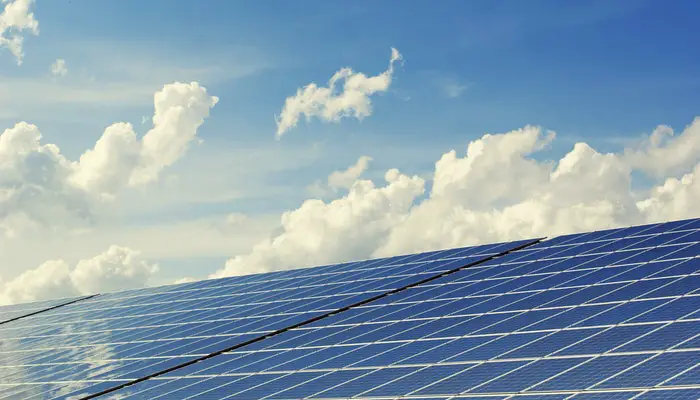If you want to be more eco-friendly, it means that you have to live in a way that isn’t harmful to the environment. This type of lifestyle is becoming more important because we need to protect the Earth from damage of the man-made persuasion. There are a variety of ways that you can make sustainable alterations in your life in order to lessen any negative effects on the planet. Here’s a look at a few of them.
Electric Cars
Gas- and diesel-powered vehicles are a massive contributor to pollution, in part due to their emissions of CO2. Everything from the smallest cars to the largest transport vehicles can contribute to the problem.
Electric vehicles (EVs) are currently the most sustainable way you can drive because instead of running on fuel from gas stations, they run on electricity you can get from car charging stations either at home or in public. These EVs don’t produce any sort of pollutants, in the form of air toxins, particulates, or gas fumes. Some of the most popular EVs on the market include Tesla Model X, Hyundai Kona Electric, Audi e-Tron, and the Nissan Leaf.
Hybrid vehicles use both an electric motor and traditional combustion fuels, but emissions are still reduced, and this is good news for anyone who’s travelling. Hybrids that plug in primarily use the electric battery until it runs out of power and then the gas-powered engine does the job from there. If you’d like to purchase a hybrid vehicle, you might consider the Honda Insight, Toyota Corolla Hybrid, Ford Fusion or Escape Hybrid, and Toyota Prius.
Renewable Energy

Solar PV (photovoltaic) installations turn the energy from the sun into electricity utilizing PV solar panels. This lets you generate your very own low-maintenance, sustainable, and reliable energy, which can save you quite a bit – both in money and in carbon usage. Once these panels are installed, they don’t release any emissions and they also don’t release air pollution while they silently generate energy. This works to improve air quality, which has benefits for respiratory health.
Although installing solar panels on your home can be expensive, it’s an investment that pays off in the end. Along with helping the environment, you can save anywhere from $10,000 to $30,000 on energy costs over the life of the solar panels. If going solar is something you’d like to consider, you’ll need to assess things like the condition of your roof, the amount of energy you need, financing, and selecting the best professional to install your solar panel system.
Wash Clothes Less
Synthetic materials shed microplastics in your washing machine before finding their way to the oceans. On the ocean floor, there are more than 14 million tons of these microplastics. This number increases by the year as textiles add as much as 500,000 tons each year. 16% of these come from when we wash clothes made from synthetic materials. Their toxic fibers are responsible for degrading ecosystems and get swallowed by sea life before being passed on to mammals and even us.
Washing your clothes too much and at high temperatures can also affect their quality over time. It also wastes both electricity and water from the washing machine. Additionally, make sure you only use non-toxic detergents. You should also avoid overusing tumble dryers.
You can wash clothes less often with simple solutions. Wear clothes more often before washing them (underwear and clothes with foul odours or stains should be washed immediately). Hang your clothes up instead of throwing them in the hamper. If something smells stale, freshen it up with a fabric spray. Finally, switching your deodorants and minimizing your use of oily moisturizers and makeup can prevent stains and reduce the need to wash your clothes.
Meat

Dairy and meat are the primary sources of greenhouse gas (GHG) emissions when it comes to the agricultural industry. These emissions occur from production to processing to packaging, and even to delivery. Farming is responsible for the release of two GSGs that pack a powerful punch – methane that occurs in livestock as they digest their food, and nitrous oxide, which is an indirect product of mineral and organic nitrogen fertilizers. We can combat this by consuming less dairy and meat.
An organization known as the Intergovernmental Panel on Climate Change continuously issues severe warnings about systems and governments failing to react suitably to the climate that’s changing rapidly and continues to impact the poorest areas in the world. This displaces millions of people a year. It also intensifies the dynamics of the ever-increasing global supply and demand principles.
Fortunately, there are several ways to help. You can adopt a vegan lifestyle or reduce your meat consumption to once or twice a week. Properly cleaning and storing meat can also eliminate waste and reduce the need for meat production and processing. If you chose to continue eating meat, buy from local butcher shops or opt for meat manufacturers that use sustainable processes.
Most people aren’t aware of how their everyday actions and activities affect the environment. As transportation, electricity, and meat are necessities (for most), it’s easy to justify why it’s impossible to change. Unfortunately, if no one attempts to make improvements, the state of the environment and human life will continue to deteriorate. If you want to do your part to protect the planet and improve your health, consider buying an eco-friendly vehicle, installing solar panels, washing your clothes less often, or reducing meat consumption as an effective starting point.



